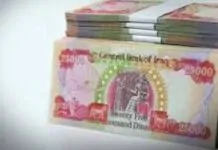Good Afternoon ,
ACTING SEC CHAIR UYEDA DIRECTS STAFF TO REVIEW STATEMENTS ON CRYPTO RISKS, SECURITY LAWS
▪️Acting SEC chair Mark T. Uyeda directed SEC staff on Saturday to review several staff statements concerning cryptocurrency regulation, including letters that warn investors of risks from crypto investing and one that provides detailed guidance for applying the Howey test to digital assets.
▪️The letters, which were compiled with the help of recommendations from the Department of Government Efficiency (DOGE), will be reviewed and “…modified or rescinded consistent with current agency priorities,” Uyeda’s statement said.
Acting Securities and Exchange Commission (SEC) Chair Mark T. Uyeda directed agency staff on Saturday to review several previously issued staff statements regarding cryptocurrency investment and the application of securities laws to digital assets.
The directive, issued in accordance with Executive Order 14192—titled “Unleashing Prosperity Through Deregulation“—follows recommendations from the Department of Government Efficiency (DOGE). Uyeda noted that the staff statements will be examined to determine if they should be “modified or rescinded” to align with the current priorities of the agency.
Among the key documents slated for review, originally published in 2019, provides detailed guidance for assessing whether a digital asset is considered a security under the Howey test, which determines whether an investment involves an expectation of profits based primarily on the efforts of others.
The application of Howey with respect to digital assets is a hotly-debated legal matter, though the SEC has made some recent clarifications, noting that memecoins are largely exempt from securities laws.
Another significant staff statement under review is a 2021 SEC staff statement that strongly advises investors to exercise caution when investing in mutual funds with exposure to the Bitcoin futures market. This statement highlighted the speculative nature of Bitcoin futures, stressing the risk of market manipulation, liquidity constraints, and volatility, particularly for mutual funds.
The SEC had expressed reservations about whether the Bitcoin futures market was sufficiently mature to support exchange-traded funds (ETFs) and other investment products without compromising investor protections, though in the time since the letter, spot Bitcoin and Ethereum ETFs have amassed tens of billions in value.
Uyeda’s directive also includes reviewing guidance issued in late 2022 following high-profile cryptocurrency bankruptcies. That guidance urged companies with exposure to crypto markets to transparently disclose potential impacts to investors, highlighting risks related to custody, liquidity, reputational damage, and regulatory scrutiny.
Uyeda also flagged a Risk Alert from February 2021, warning of “unique risks to investors” from digital asset trading, and a 2020 statement from the staff of the Division of Investment Management inviting industry feedback on Wyoming’s statement allowing state-chartered trust companies to custody digital assets. Uyeda also directed staff to review two statements regarding COVID-19.
The SEC is currently experiencing a staff “exodus” as hundreds of staffers take buyout offers, Reuters recently reported. More than 600 people have accepted voluntary buyout offers and agreed to leave the SEC, according to the report, more than 12% of the agency’s staff. The SEC could not be immediately reached for comment by The Block.
@ Newshounds News™
Source: The Block
~~~~~~~~~
WHAT ARE SEC’S NEW “COVERED STABLECOINS”? TETHER’S USDT MAY NOT QUALIFY!
▪️The SEC clarified that some stablecoins meeting strict criteria may not be securities.
▪️This new guidance is welcomed by some for providing clarity but criticized by others for oversimplifying risks.
▪️Tether is reportedly considering launching a new USD-backed stablecoin to comply with the SEC’s guidelines.
In a rare and clear move, the U.S. Securities and Exchange Commission (SEC) has introduced new guidance that could significantly impact the stablecoin market. The agency said that certain stablecoins – now called “covered stablecoins” – may not be treated as securities, as long as they follow strict conditions.
The crypto industry has already begun to respond. Tether, one of the largest stablecoin issuers, is reportedly considering changing its strategy to fit within the SEC’s new framework.
“Covered Stablecoins are not marketed as investments; rather, they are marketed as a stable, quick, reliable and accessible means of transferring value, or storing value and not for potential profit or as investments,” the SEC stated.
What Exactly Is a “Covered Stablecoin”?
The SEC explained that covered stablecoins are not offered as investment products. Instead, they’re presented as a stable, fast, and accessible way to send or store money—not something to make a profit from.
To qualify as a covered stablecoin, the token must meet several key requirements:
▪️Be fully backed 1:1 by the U.S. dollar
▪️Be supported by low-risk, highly liquid assets
▪️Be redeemable at full value at any time
These stablecoins must not offer interest, promise profits, give voting rights, or represent any form of ownership. They are meant strictly for use in payments, transfers, or storing value—not as investments.
Since they’re sold as “digital dollars” and not investment opportunities, the SEC says these stablecoins don’t count as securities under U.S. law. This kind of clarity is unusual for the SEC, which often takes a more cautious or enforcement-first approach to crypto.
Mixed Reactions from Experts
David Sacks, a White House crypto advisor, welcomed the update. He said it offers much-needed clarity and reduces regulatory hurdles for dollar-backed stablecoins that are fully supported by safe assets. He also noted that these types of tokens would no longer need to register under the Securities Act.
However, SEC Commissioner Caroline Crenshaw disagreed. She warned that the guidance oversimplifies how stablecoins actually work and overlooks key legal issues. Crenshaw argued that the risks involved are being downplayed, and the update could create confusion about how these tokens function.
Tether Faces New Challenges
The new rules may benefit stablecoins like USDC, but they raise concerns for Tether’s USDT. That’s because the SEC doesn’t allow stablecoins to be backed by assets like cryptocurrency or gold—both of which are included in USDT’s reserves.
According to Forbes reporter Nina Bambysheva, Tether is now exploring the idea of launching a new stablecoin that would fully follow U.S. rules. This new coin would be backed only by cash and U.S. Treasuries, marking a major shift for the company.
Crypto analyst Novacula Occami also noted that Tether’s use of Bitcoin and gold in its reserves could make USDT ineligible for the “covered stablecoin” label. That could expose it to stricter regulations under U.S. securities law.
Tether’s Plan for a U.S.-Compliant Stablecoin
Despite the potential regulatory pressure, Tether doesn’t seem too worried about a possible U.S. ban on USDT. According to CTO Paolo Ardoino, the company is already thinking ahead and preparing to launch a separate U.S.-compliant stablecoin.
Ardoino said USDT will likely remain focused on emerging markets, while the new stablecoin would be designed specifically for the U.S. market and built to comply with American regulations.
Even as the wider crypto market struggles through a difficult first quarter, stablecoins are seeing strong growth. Daily usage continues to rise, and the stablecoin market added over $30 billion in Q1 alone – showing that demand remains high despite broader market uncertainty.
It’s not every day the SEC speaks plainly on crypto – so when it does, the industry listens!
@ Newshounds News™
Source: Coinpedia
~~~~~~~~~
Seeds of Wisdom Team RV Currency Facts Youtube and Rumble
Newshound’s News Telegram Room Link
Q & A Classroom Link
Follow the Roadmap
Follow the Timeline
Seeds of Wisdom Team™ Website






